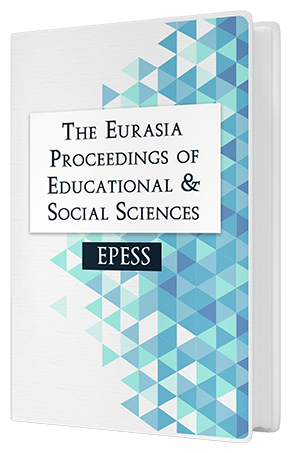Investigation of Relative Opinions of Teacher Candidates in Pedagogical Formation Education
DOI:
https://doi.org/10.55549/epess.1071461Keywords:
Pedagogical Formation, Teacher Candidate, Kpss ExamAbstract
Public institutions staff recruitment exam center in Turkey for the first time in 1999 Typewriting State Examination (DMS) has been tested with an exam. The name of this exam was later changed to the Public Personnel Selection Examination (KPSS). This examination was used as a criterion in the teacher appointments of the Ministry of National Education as in other public institutions. In 2013, it was decided that KPSS exam should not be sufficient in the purchase of teachers and it was decided that the students should take the exam in some branches of Teaching Area Knowledge (ÖABS) tests. This study was carried out in order to determine the opinions of physical education teacher candidates who received pedagogical formation training about meni KPSS eğitim exam. The open-ended questions developed by the researcher as a data collection tool were presented to the candidates of physical education teachers who received pedagogical formation training. Using the interview method which is one of the qualitative research methods, the data obtained from physical education teacher candidates who received 50 pedagogical formation education from different universities were analyzed by content analysis method. As a result of the study, it was concluded that the majority of physical education teacher candidates who received pedagogical formation education did not have enough created by “KPSS” exam for teacher assignment and selection; It has been reached.Downloads
Published
Issue
Section
License
Copyright (c) 2021 The Eurasia Proceedings of Educational and Social Sciences

This work is licensed under a Creative Commons Attribution-NonCommercial-ShareAlike 4.0 International License.
The articles may be used for research, teaching, and private study purposes. Any substantial or systematic reproduction, redistribution, reselling, loan, sub-licensing, systematic supply, or distribution in any form to anyone is expressly forbidden. Authors alone are responsible for the contents of their articles. The journal owns the copyright of the articles. The publisher shall not be liable for any loss, actions, claims, proceedings, demand, or costs or damages whatsoever or howsoever caused arising directly or indirectly in connection with or arising out of the use of the research material. All authors are requested to disclose any actual or potential conflict of interest including any financial, personal or other relationships with other people or organizations regarding the submitted work.




